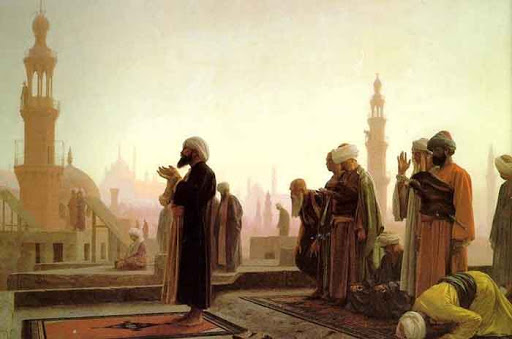Since the passing of the Prophet Muhammad, there has been no single authoritative figure among the faithful who holds the final word on religious truth. From the moment of the Prophet’s death, the Muslim community has never been fully unified in thought, opinion, or belief. This reality began with the leadership of Abu Bakr, one of the Prophet’s closest companions, and has continued through the present day.
When Abu Bakr was chosen as the Prophet’s successor through a process of consultation (shura), the seeds of disagreement among the faithful began to emerge. The subsequent caliphs—Umar bin Khattab, Uthman bin Affan, and Ali bin Abi Talib—each met a violent end, assassinated by the sword. These tragedies only set the stage for further conflicts in the years to come.

The position of Prophet Muhammad remains irreplaceable within Islamic tradition, particularly in his role as both Prophet and Messenger. His unique standing as the final authority on religious matters cannot be replicated. However, the Prophet did not leave behind a fixed system of governance or leadership for the Muslim community. As a result, the four rightly-guided caliphs (Khulafa ar-Rashidun) were each chosen through different methods.
This lack of a fixed leadership structure is one of three unresolved matters that Companion Umar bin Khattab noted were left unanswered by the Prophet: issues of inheritance (kalalah), usury (riba), and leadership (caliphate). Consequently, after the time of the rightly-guided caliphs, the titles for leaders and governing systems varied. Terms like caliphate, monarchy (mulk), sultanate, and emirate emerged, each adapted to local customs and territories.
To this day, there is no standardized form of Islamic governance. Even in modern states that declare themselves Islamic, their political systems differ widely. Furthermore, there has never been a universally recognized Islamic state that represents all Muslims globally. Movements aiming to unify the global Muslim community under a single political banner have invariably ended in chaos, confusion, and even warfare.
Consider, for example, the fate of movements like Pan-Islamism led by Jamal al-Din al-Afghani, or more recent efforts such as the Islamic State in Iraq and Syria (ISIS) and Hizb ut-Tahrir, including its Indonesian branch, Hizb ut-Tahrir Indonesia (HTI).
The Prophet Muhammad did not establish a religious hierarchy, as seen in the Catholic tradition. This is why his role as the final Messenger cannot be replaced. Instead, the Prophet advised his followers to seek guidance from his companions and scholars. However, Islam has no formal religious hierarchy, meaning no individual or institution holds the final authority on religious matters. For instance, the Indonesian Council of Ulema (MUI) holds a status equal to that of Nahdlatul Ulama (NU) and Muhammadiyah. Their religious rulings (fatwas) are opinions, not binding legal decisions.
In Islam, religious leaders—like caliphs, monarchs, sultans, and emirs in governance—have different titles depending on local traditions. They may be known as kiai, sheikhs, scholars (ulema), or imams, but none of these titles carry the weight of being a global religious leader. The history of Islamic jurisprudential schools (mazhab) is a testament to this diversity. Followers of the Hanafi, Maliki, Shafi’i, and Hanbali schools of thought adhere to their respective teachings, but none claim universal authority.
The events following the death of the Prophet Muhammad demonstrate that there is no singular leadership in the Islamic tradition, except within the Shia branch of Islam. Only Shia Islam has adopted the concept of imamate, which elevates its leader to the position of a grand imam, believed to be the rightful leader of the entire Muslim community.
In its most extreme form, Shia doctrine even questions the prophethood of Muhammad, suggesting that Ali bin Abi Talib—later referred to as Imam Ali—was the rightful prophet. Shia Islam traces its leadership through 12 imams, all descendants of Imam Ali and the Prophet’s family. To this day, Shia Muslims await the return of their hidden imam, Imam Mahdi, who is believed to be the true leader of the global Muslim community.
Therefore, outside of Shia tradition, there is no concept of a grand or supreme leader in Islam. Anyone claiming such a title outside the Shia context is merely a self-declared figurehead.
Translated from here.






